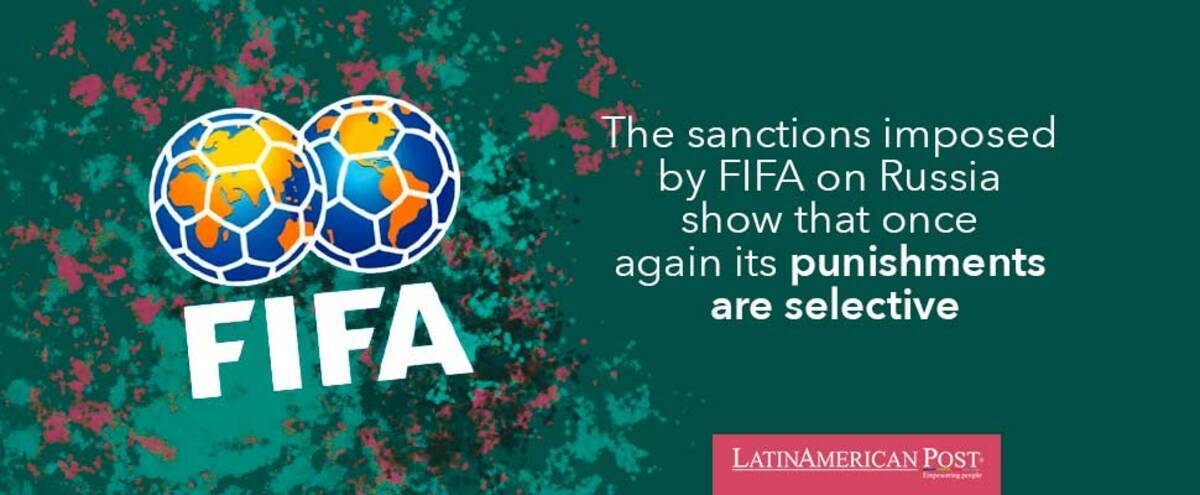Opinion: FIFA’s Double Standard with Russian Bans
The sanctions that FIFA has imposed on Russia show that once again its punishments are selective.

Photo: Latin American Post
LatinAmerican Post| Juan Manuel Londoño
Escucha este artículo
Leer en español: Opinión: el doble estandar de la FIFA con las prohibiciones rusas
On February 28, both FIFA and UEFA acted jointly to ban Russian teams from all international competitions. In a joint statement, both organizations stated that “Soccer is fully united here and in full solidarity with all affected people in Ukraine. Both presidents hope that the situation in Ukraine will improve significantly and quickly so that soccer can once again be a vector of unity and peace between people."
This is a clear example of diplomatic pressure, which has been applauded by various international organizations and media. For example, the Ukrainian Ministry of Sport commented that “Russian authorities use sports achievements for the propaganda of their own ideology” and as “a tool to popularize ideas of intimidation, murder and destruction.”
It seems that this standard is only being applied to Russia. FIFA doesn't care, for example, about the many human rights violations taking place in Qatar, the venue for its next big World Cup. Just to give an example, 100 migrant workers who built a stadium for the event in this country lasted 7 months without pay and FIFA did not bat an eye.
But this does not even scratch the surface of the rights problems in this country. Restrictions on freedom of expression, peaceful protest, criminalization of homosexuality and dangerous working conditions are just some of the "sacrifices" that facilitate the new venue for the 2022 World Cup.
Also read: FIFA sanctions, which have been the most severe?
And it is not necessary to start quoting all the atrocities committed by the countries that are part of FIFA to understand why this body was wrong in this decision. As former Egyptian player Mohamed Aboutrika put it, “The decision to suspend Russian clubs and teams from all competitions must be accompanied by a ban on affiliates of Israel, which has been killing children and women in Palestine for years.” Where do we begin to judge who deserves to compete or not?
On the other hand, it is not sensible to say that soccer players by competing “are popularizing ideas of intimidation, murder and destruction”. This is nothing more than populism, which seeks to essentialize the conflict and stigmatize the Russian population.
Episodes of violence against Russian restaurant owners have already been seen in the United States and other parts of the world. If this trend continues, we could see something similar to what happened to the Chinese population at the beginning of the pandemic or, in the worst case, a social persecution like that of the cold war. The stigmatization of a group for a decision that is out of their control.
Not all Russian citizens support the war with Ukraine and this includes some of its athletes. Moreover, by taking away the ability to compete, they are taking away the opportunity for anti-war athletes to protest on the biggest stages internationally. I am not saying that the ban should be lifted, but I am saying that the pros and cons of this situation should be more carefully evaluated.




